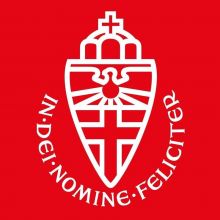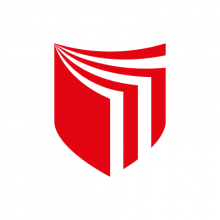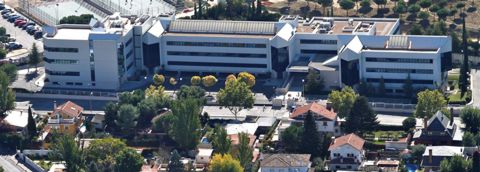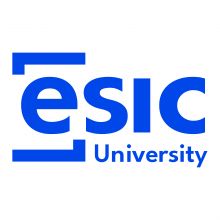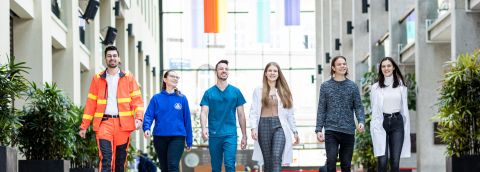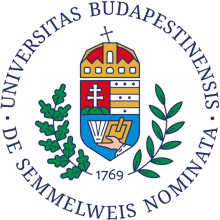About University of Algarve
The University of Algarve (UAlg), founded in 1979, is in the touristic Algarve region in southern Portugal. It was formed through the merging of the University of Algarve and the Polytechnic Institute of Faro.
Still today, faculties and schools of both institutions co-exist in UAlg’s four campuses. Three of these campuses are in the city of Faro and while the other is in the town of Portimão. The Saude Campus at the entry to the city of Faro has newly built facilities for the Faro School of Health, which was incorporated into the university, then known as the Faro School of Nursing, in 2003. The Portimão campus, in the second largest city in Algarve, was created because of the need for decentralisation. Each campus has its own library.
UAlg teaches across six subject areas: arts; literature and history; engineering sciences; life, earth, marine and environmental sciences; medicine and allied sciences; social, education and professional training sciences; and economics, management and tourism.
The Student Union offers students free water sports such as canoeing, windsurfing and sailing at the Nautical Sports Centre at Faro Island (Centro Náutico da Ilha de Faro). Other sporting events include the Sports Festival of exhibitions and workshops, held in downtown Faro in September, and the Snow Campus, a skiing and snowboarding event in winter.
Research at UAlg is carried out in several research centres: Molecular and Structural Biomedicine; Marine Sciences; Electronics, Optoelectronics and Telecommunications, Arts and Communication; Spatial and Organisational Dynamics; Marine and Environmental; and Chemistry.
Explore these featured universities
Explore rankings data for University of Algarve
Compare universities on their key stats
Key statistics
- 15.0No. of students per staff(1)
- 19%Percentage of International Students(1)
- 56 : 44Student Ratio of Females to Males(1)
- 24%Proportion of ISR Publication(1)
- 8,878Number of FTE Students(1)
Subjects taught at University of Algarve
Arts & humanities
- History, Philosophy & Theology
- Art, Performing Arts & Design
- Architecture
- Archaeology
- Languages, Literature & Linguistics
Physical sciences
- Mathematics & Statistics
- Geology, Environmental, Earth & Marine Sciences
- Chemistry
- Physics & Astronomy
Business & economics
- Business & Management
- Economics & Econometrics
- Accounting & Finance
Engineering & technology
- Civil Engineering
- Chemical Engineering
- Mechanical & Aerospace Engineering
- General Engineering
- Electrical & Electronic Engineering
Education
- Education
Clinical, pre-clinical & health
- Medicine & Dentistry
- Other Health
Social sciences
- Politics & International Studies (incl Development Studies)
- Sociology
- Communication & Media Studies
- Geography
Psychology
- Psychology
Computer science
- Computer Science
Life sciences
- Agriculture & Forestry
- Biological Sciences
- Sport Science


